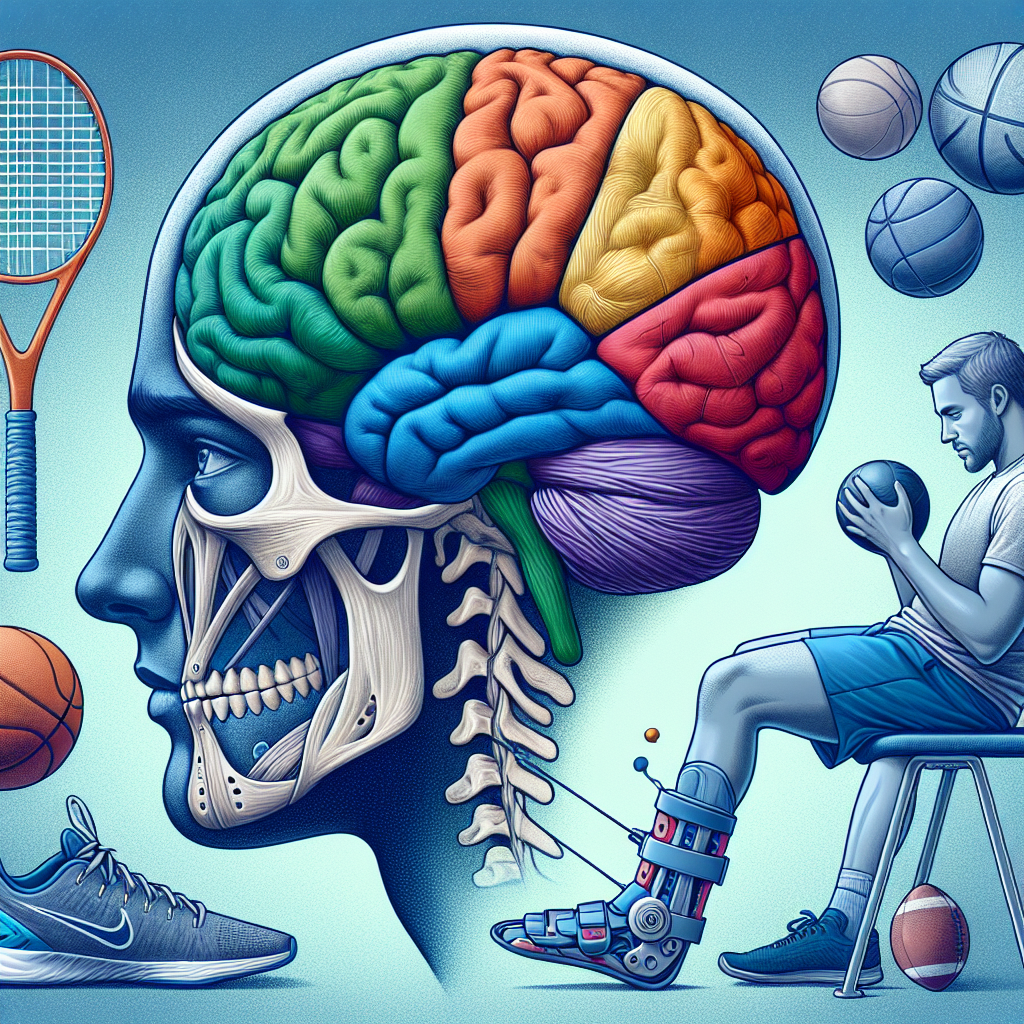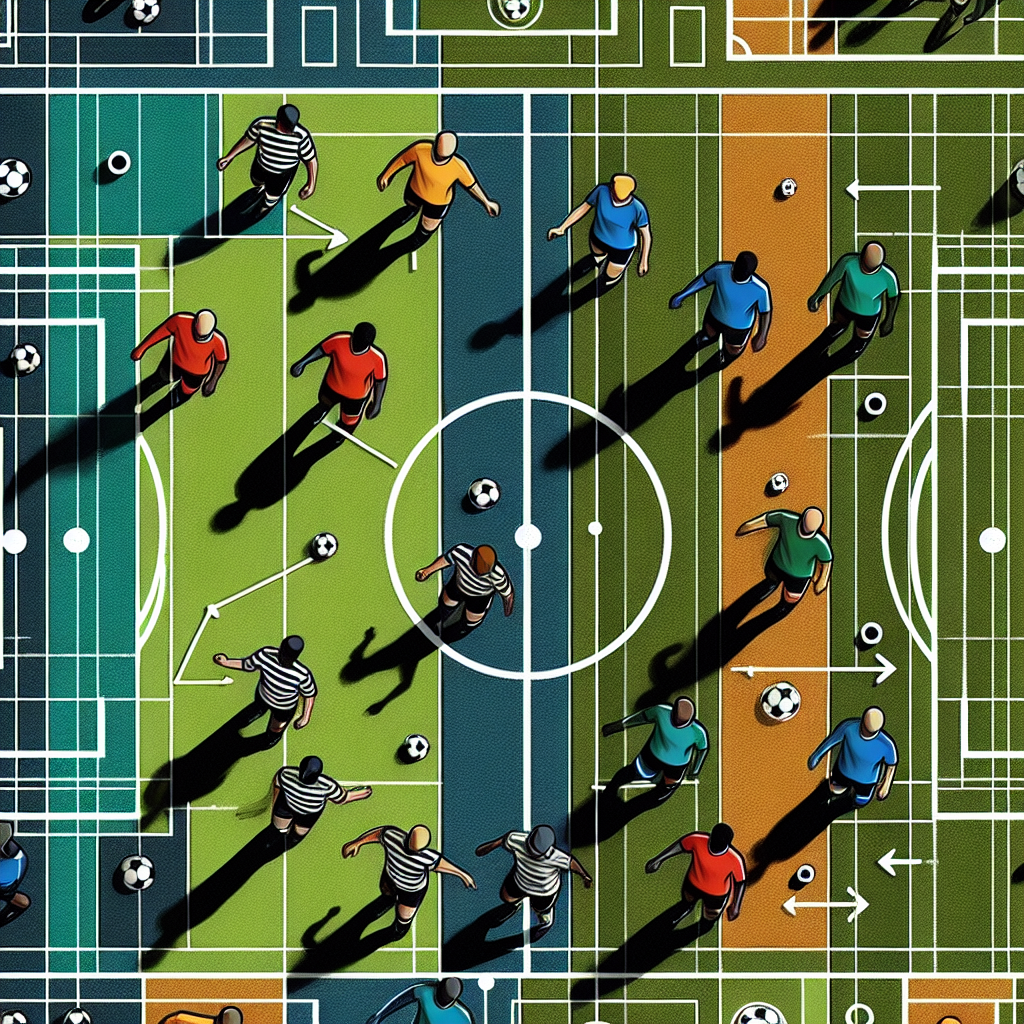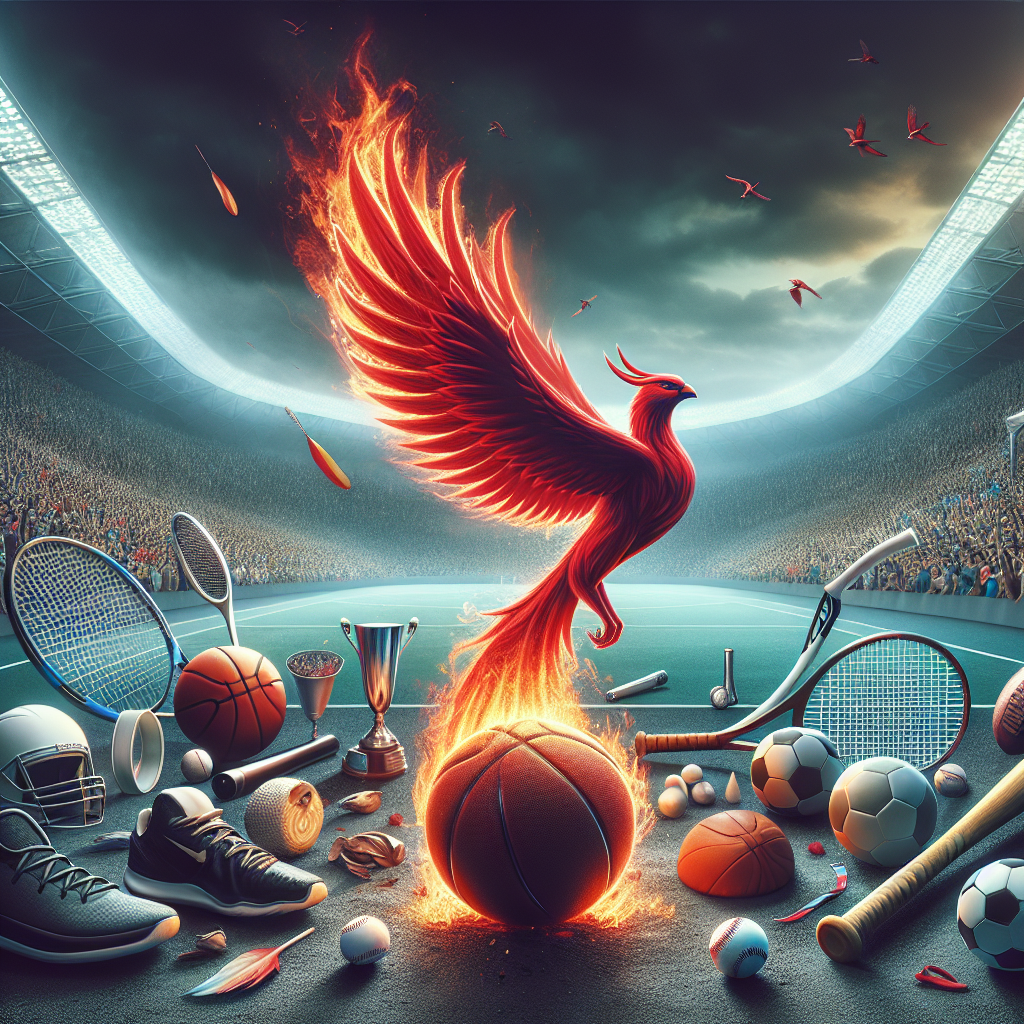
Introduction
In the world of sports, injuries are often a part of the game. While physical rehabilitation has traditionally taken center stage, an increasingly urgent issue is emerging: the psychological effects of sports injuries on athletes. In 2025, it is crucial to understand that an athlete’s mental health can be profoundly impacted by the physical setbacks they encounter. The psychological ramifications of these injuries extend beyond the field and can affect personal relationships, performance psychology, and overall well-being. This article aims to explore the psychological effects of sports injuries on athletes in great detail, shedding light on the complex interplay between physical damage and mental health.
The Emotional Toll of Sports Injuries on Athletes
The emotional response to sports injuries can be overwhelming for athletes of all levels. When an injury occurs, it can trigger a range of feelings including anxiety, anger, and depression. The anticipation of being sidelined can evoke a sense of loss—not only of physical ability but also of identity. Many athletes identify closely with their sport, and a significant injury can disrupt their sense of self. This emotional turmoil is compounded by factors such as the intensity of the athlete’s investment in their sport and the pressure to return quickly to performance levels.
Moreover, athletes may also grapple with fear, particularly the fear of reinjury. This anxiety can manifest in various ways, from hesitation in play to outright avoidance of certain movements. The mental block that often accompanies physical rehabilitation can prolong the recovery process, as psychological barriers become just as significant as physical limitations. The delicate balance between the mind and body means that without addressing psychological factors, athletes may struggle to regain their former performance levels even when their physical therapy has been successful.
The Impact of Sports Injuries on Mental Health
Injuries can exacerbate pre-existing mental health issues and even trigger new ones. For instance, athletes who experience prolonged rehabilitation are at an increased risk of developing depression or anxiety disorders. The isolation that accompanies injury—due to reduced training sessions or social interactions within team dynamics—can lead to feelings of loneliness and despair. In 2025, mental health awareness is gaining traction in sports, emphasizing the need for support systems that address these challenges.
Additionally, the intense pressure from society, fans, and sponsors can increase an athlete’s stress levels, complicating their emotional landscape. The pervasive “win-at-all-costs” mentality often leaves little room for acknowledging the psychological struggle stemming from injuries. This lack of recognition creates an environment where athletes feel compelled to downplay their emotional pain, exacerbating their struggles. They may feel that discussing mental health vulnerabilities is a sign of weakness rather than a step toward holistic recovery.
<h2 Coping Mechanisms and Recovery Strategies for Injured Athletes
Mental recovery from a sports injury is vital and should be treated with the same urgency as physical rehabilitation. One effective strategy is the use of cognitive-behavioral therapy (CBT), which helps athletes challenge negative thoughts and develop healthier coping mechanisms. By addressing distorted beliefs and cultivating a positive mindset, athletes can enhance their emotional resilience, making it easier to navigate the complexities of injury recovery.
Mindfulness and meditation have also emerged as practical tools for athletes dealing with the psychological fallout of injuries. These techniques encourage athletes to focus on the present moment, reducing anxiety about future performance or fears of reinjury. In 2025, many sports organizations are adopting these methods, offering wellness programs that incorporate mental training alongside physical recovery. This integrated approach encourages athletes to harness their mental strengths, promoting a more holistic recovery process.
Peer support groups can play a significant role in the emotional recovery of injured athletes. Sharing personal experiences with others who have faced similar challenges can normalize feelings of frustration and sadness. These groups foster a sense of community and belonging, reminding athletes that they are not alone in their journey. As we progress further into 2025, the importance of creating safe spaces for athletes to discuss their mental health struggles becomes increasingly vital.
<h2 Rehabilitation: The Intersection of Physical and Mental Recovery
A thorough rehabilitation program must address both physical and psychological aspects of recovery. This dual focus can facilitate a more effective return to sport and reduce the likelihood of setbacks. Collaboration between physical therapists and mental health professionals is essential to achieve this integration, as they can create tailored programs that consider the individual athlete’s needs. With advancements in sports science, there is growing recognition of the significant link between mental and physical health, leading to comprehensive recovery plans.
It is important for coaches and training staff to foster an environment that encourages open conversations about mental health. Athletes should feel comfortable discussing their mental barriers without fear of judgment or repercussions. Schools and organizations are increasingly incorporating mental health training for coaches, equipping them with the tools to recognize signs of psychological distress in athletes and provide adequate support.
Furthermore, setting realistic goals during rehabilitation can alleviate anxiety and foster a sense of accomplishment. Gradual progression encourages athletes to celebrate small victories rather than viewing their recovery as an insurmountable challenge. Understanding that setbacks are a natural part of the journey can help athletes manage their expectations and alleviate some of the mental stress associated with the recovery process.
<h2 The Long-Term Psychological Impact of Sports Injuries
The long-term psychological effects of sports injuries can be profound and warrant significant attention, especially as athletes transition out of competitive sports. Some may experience challenges such as identity crises following their sports careers, particularly if they have fully invested themselves in their athletic pursuits. The transition from athlete to retiree can lead to feelings of loss, prompting a search for new identities and purpose beyond sports. This stage can be rife with emotional turmoil if not managed properly, potentially leading to issues such as chronic depression or substance abuse.
Moreover, the fear of reinjury can linger even after physical recovery. Athletes often carry this psychological baggage into their sport, impacting their confidence and mental performance. This is particularly salient in sports with high physical demands, where the risk of injury is elevated. Athletes may remain tentative in their performance, which can create a negative feedback loop, as poor performance is likely to reinforce fears and anxieties about future injuries.
Finally, ongoing support and intervention are crucial for the mental health of retired athletes, with many requiring counseling or therapy to adapt to life after sports. The stigma surrounding mental health can deter many from seeking help, emphasizing the need for comprehensive mental health resources for athletes throughout their careers and beyond. Continued education on the importance of both mental and physical health can foster a culture that values holistic well-being in athletic communities.
Conclusion
The psychological effects of sports injuries on athletes are profound and far-reaching. Understanding and addressing these challenges is essential for both athletes and their support systems. By integrating mental health strategies alongside rehabilitation, we can foster an environment where athletes feel supported throughout their recovery. This comprehensive approach not only aids in recovery but also prepares athletes for long-term success—both on and off the field. As we move further into 2025, a focus on mental health awareness in sports is more crucial than ever in ensuring athletes can navigate their journeys with resilience and hope.
FAQs
What are the common psychological effects of sports injuries?
Common psychological effects include anxiety, depression, stress, feelings of identity loss, and fear of reinjury. These emotions can complicate recovery and affect overall well-being.
How can athletes cope with the psychological impact of injuries?
Coping mechanisms may include cognitive-behavioral therapy, mindfulness practices, peer support groups, and maintaining open communication with coaches and health professionals.
What role do coaches play in an injured athlete’s recovery?
Coaches can create a supportive environment that encourages mental health discussions, helping athletes feel safe to express their feelings and concerns during recovery.
Why is mental health important in athletic recovery?
Mental health is crucial because it impacts an athlete’s motivation, performance, and overall recovery process. Addressing mental health helps in building resilience and preventing setbacks.
How can sports organizations better support injured athletes?
Sports organizations can support injured athletes by providing mental health resources, educating coaches on mental health awareness, integrating psychological care into rehabilitation programs, and fostering a culture that prioritizes overall well-being.
Understanding Team Offensive Efficiency Ratings
16. Dezember 2025The Role of Advanced Stats in Evaluating Team Chemistry
16. Dezember 2025How to Interpret Team Defensive Metrics
16. Dezember 2025
Leave a reply Antwort abbrechen
-
Geopolitical Tensions in the South China Sea
16. Dezember 2025 -
How Grassroots Movements Strengthen Democratic Practices
22. November 2025 -
Case Studies: Famous Athletes and Their Comeback from Injuries
6. Dezember 2025



